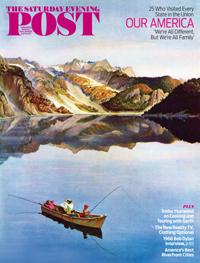 |
| Michael Bracken (left) at Bouchercon 2018. |
Research. Each completed story requires market research to determine the best market or markets for the story.
Format. Though a few of us older writers and editors pretend there is, there is no longer a standard manuscript format, and some manuscripts have to be reformatted before each submission.
Rejection. Each rejection must be recorded to prevent submitting a story to the same publication multiple times, and then it must be filed (as I do) or discarded (as some writers do).
Acceptance. This likely involves some response to let the editor know that, yes, the story is still available and, yes, I’d love to see my story in her publication, and, yes, I’m looking forward to receiving the contract.
Contract. Have you seen some of these things? I’ve received contracts that were longer than the stories for which they were offered, and I read every word before I sign. Sometimes, terms of the contract require negotiation, which requires even more time.
Payment. These days payment doesn’t often happen before publication, but God bless the publications that pay on acceptance. Regardless of when payment is received, it has to be recorded in some form (ledger, spreadsheet, accounting software) and then deposited in the bank.
Copyedit. Many publications let contributors review copyedited manuscripts prior to publication. This is when I realize the editor is a freaking genius or I decide the editor’s third-grade education did not prepare him to edit my work. Either way, copyedits require time to read and time to generate a respectful, professional response explaining exactly why I disagree with some or all of the changes.
Page proof. I know many people refer to these as galleys, but they aren’t. (Most of the people who refer to these as galleys aren’t old enough to have worked with actual galley proofs. If what you’re reading is formatted and presented to you in page form, you’re reading page proofs.) Like copy edits, these take time to read and to generate a response.
Contributor copy. Most publications provide a contributor copy. (Many amateur publications provide a “free copy!” because the publishers don’t know the proper term for what they’re doing and think providing contributor copies is somehow doing contributors a favor.) It takes time to reread my story in published form. It also takes time to record the date of publication and to share the news with supportive family and friends.
Reprint. A story might later be reprinted in a best-of-year anthology, a themed all-reprint anthology, a collection of my own work, or licensed for publication in another language, licensed for other media such as audio, or optioned for movie or television, and each of these reprint and licensing opportunities comes with paperwork and ancillary tasks similar to that listed above for an original sale.
Every step in the process, and maybe even a few steps I’ve overlooked, requires time and takes it from writing time.
And none of this includes optional tasks such as maintaining social media and engaging in blatant (and not so blatant) self-promotion, nor does it include semi-optional tasks like developing and maintaining good relationships with editors and other writers.
A writer who produces only a few stories each year may never realize how much time they spend on ancillary tasks, but even moderately productive short-story writers soon find themselves spending more time on the ancillary tasks than the primary task that creates all this extra work.
When I get overwhelmed with all the ancillary tasks and complain to my wife about how much time I’m working but not writing, Temple brings me back to earth by noting that I’m only complaining because I’m living my dream, and she asks, “Do you want cheese with that whine?”
My story “Remission” appears in Landfall (Level Best Books), “Deliver Us from Evil” appears in issue 2 of Thriller, and “Christmas Wish” appears online at The Saturday Evening Post.








